- Home
- Rick Mofina
Jason Wade - 02 - Every Fear Page 8
Jason Wade - 02 - Every Fear Read online
Page 8
Charlie and Mandy Burkeyne were taking Crystal, their baby girl, to a doctor’s appointment to treat an ear infection. The doctor’s office confirmed through medical records that the Burkeynes were the baby’s parents.
Photos of the van’s windshield were e-mailed to the crime scene investigators. The van was not missing a wiper, like the one Maria Colson had ripped from the vehicle.
Charlie Burkeyne was a welder “between jobs.” Money was tight and he was a procrastinator, had never fixed the gas door or updated his gun registration.
Police regretted any inconvenience the Burkeynes had experienced after being arrested, but they refused to apologize for making the stop, asserting that under the circumstances, they had made the right call.
“If Crystal were taken from you,” Sergeant Stan Boulder said softly to Charlie and Mandy Burkeyne, “wouldn’t you want us to do everything and look everywhere to find her?”
Mandy Burkeyne kissed her daughter’s head tenderly, then nodded.
So went the search for Dylan Colson.
In the wake of the alert and news conference, the FBI and Seattle Police hotline received a steady flow of tips, reflecting the concern of people making a heartfelt attempt to help. Unfortunately, most of the information was useless, with calls like: “I saw a van, not sure where, when or what color”; or, “My neighbor’s weird because his dog barks a lot.” Calls with something a little substantive usually dead-ended.
All were saved and stored.
In the hours after Dylan Colson was stolen and his mother left to die on the street, police were no closer to the truth.
14
The deadline for the Seattle Mirror’s first edition was less than two hours away.
It ticked in the back of Jason Wade’s mind as the elevator doors opened to the newsroom. His stomach was growling. On the way to his desk he stopped at the coffee room to grab something to eat.
As his coins bonged through the vending machines he mulled over everything; the abduction, the possible homicide, the news conference, the dramatic takedown, that bit from Lee Colson about Dylan being a “miracle baby.” As he considered what he would eat, one strange aspect of the day niggled at him—Grace Garner’s call at the news conference.
What was behind it?
It was unusual for a Homicide detective to press him for information the way she did. Maybe he should call her later, push her a bit, he thought, collecting his soda, cupcakes, and potato chips, for the lunch and supper he’d missed.
Leanne Belmont watched him over her cup of herbal tea. The silver-haired copy editor had been a crime reporter with the Mirror long before she left to raise four children at home.
“That junk will kill you, Jason.”
“It’ll be a sweet death.”
“Quite a story you’ve got. That takedown looked scary. Anything to it?”
“Nope, just people who fit the description.”
“Is Maria Colson still alive?”
“She was last time I checked with the hospital.”
“What an ordeal. It’s horrible.” Belmont stepped closer and touched his shoulder. “Forgive me for changing the subject, but anything to the rumor that Spangler fired Astrid?”
“It’s true.” Jason kept an eye on the time as they walked to the newsroom. “It happened this morning. She missed one too many stories.”
“Spangler’s scary. Astrid should talk to the union.”
“She should’ve done her job.” He glanced at the nearest clock. It was in the sports department, above a life-size blowup of a Seahawks touchdown. “Where’s Fritz? I gotta talk to him.”
Belmont nodded across the Metro section to the boardroom, where the day’s final story meeting was breaking up. Spangler emerged gripping a clipboard. Tie loosened, sleeves rolled up, he pointed directly at Jason, then to his office.
“Watch your back,” Belmont whispered.
One wall of Spangler’s office was a shrine to himself. Front pages of his biggest Seattle and New York stories. Framed and signed photographs of Spangler meeting presidents, governors, the Rolling Stones, Madonna, Springsteen. Glory days.
“It’s late. Where the hell you been, Wade?”
“On the story.”
“You didn’t answer when I called after the conference.”
“I was on other calls, or interviewing someone.”
“Answer your damn phone when I call, got that?” Spangler glanced at his clipboard notes and remained standing. “You’ll have the lead on this story until I say otherwise, got it?”
“Got it.”
“You’re writing our main story, which will go page one and jump.”
Jason set his snacks on the edge of Spangler’s desk, then pulled out his notebook. “How long do I go with it?”
Spangler stared at the food, offended that Jason hadn’t sought permission to use his desk. “Go as long as you need to, it’ll turn to an inside double truck. We’ve got strong art.” Spangler’s large monitor showed Nate Hodge’s crisp, vivid photos of Lee Colson’s heartbroken face, forensic experts in white moon suits working the scene, insets of Maria and Dylan, a powerful shot of Dylan’s overturned carriage next to a dark, red puddle—his mother’s blood.
“What else is coming?”
“Munroe Wicker’s doing a column. Sleepy community victimized. I’ve sent Phil Tucker to Ballard for more info. He’ll feed his quotes and color to you, give them a files credit.”
After jotting notes, Jason met Spangler’s cold stare.
“Shut the door,” the Metro chief ordered.
He closed it. Spangler remained standing.
“You listen to what I’m going to tell you, Wade, and you listen good. A radio station’s reporting a reward for the kid; Channel 99 says there are neighborhood patrols, and CNN is talking to former FBI agents on investigations. We’ve heard that the Seattle Post-Intelligencer has nailed an interview with parents in Ohio or Florida whose baby was abducted and murdered ten years ago—the woman who did it committed suicide in prison.
“All of Seattle is feasting on this ‘baby-snatchedmother-in-coma’ story. It’s national news. Our circulation is melting. We need to be out front on this one. We need to break exclusives. It’s our shot at a Pulitzer. Anything less is unacceptable. I’m warning you now, if you miss a single angle, or allow us to get beat by anyone on anything, it’s your ass. Do I make myself clear?”
A rush of anger churned in the pit of Jason’s stomach as his memory streaked through the nightmares he’d faced in his life.
“I think you’re forgetting something,” he said.
“Excuse me?”
“Before you got here, I was already breaking exclusive stories. While you were in Manhattan contemplating a career move, I was bleeding for this paper. I live and breathe my beat; don’t tell me how to work it and don’t threaten me.”
Spangler’s face hardened.
“You listen to me, slick. House-trained pups have long since crapped on your ‘exclusives.’ Your old stories don’t do a damned thing for us now. And that big chip you’ve got on your shoulder is sitting there perilously. So unless you want your employment to end here and now, get your ass in your chair and get to work, because your deadline is looming.”
Jason collected his cupcakes, potato chips, and soda.
“And one more thing: talk to me like that again and you’re gone.”
Jason shot a parting glare at Spangler, then left, adrenaline pumping as he settled in at his desk, fired up his computer, and adjusted the scanners. Forget about it. Concentrate, he told himself.
He glanced at Astrid’s empty chair. It was always empty around this time. But this time—man. He looked at her desk, at the things she’d left behind, her open notebook, uncapped pen, half-finished granola bar, card pulled from her organizer, dates circled on her calendar. It held the eerie air of a crime scene, the aftermath of execution-style management.
His computer beeped amid the scanner chatter, pushing Spangler f
rom his head. He worked the fight out of his system by going through his notes page by page, rapidly typing all the information he’d gathered that day into a story file.
He crafted a rough lead, a couple of nut grafs, then mapped out the story. He went to his e-mail, collected the files from the other reporters. They weren’t bad, he thought as he went through them.
He read the data the news librarian had researched for him. “Jason—These are weighty but good. I’ve highlighted relevant parts for you,” said the note she’d attached to several academic articles and published studies on baby abductions. He’d written about child abductions before but she’d found updated stats, he thought, eating his cupcakes and potato chips as he read.
It was clear the FBI had gone by the book and had cautioned Lee Colson before the news conference so he wouldn’t publicly antagonize whoever stole Dylan. He didn’t threaten them, get angry, or call them names. Kidnappers usually followed news reports.
The studies suggested that some 5,000 children were abducted each year by strangers. Baby abductions were rare. They averaged a dozen each year. Babies that were recovered were usually found within hours or weeks and within 75 miles of their home.
The babies that were killed died within three to six hours of their abduction.
Man.
He looked to the window, where the fading afternoon sun and early evening shadows had yielded to the night. Lights twinkled from the traffic moving along the edge of Elliott Bay. Time was ticking against him.
His keyboard clicked as he wove in facts, statistics, opinions, quotes, and color from the other sources. He worked on transitions, keeping a smooth flow as time galloped by. The story ran long, some fifty inches. He sent it electronically to Vic Beale, the Mirror’s night editor.
Twenty minutes under deadline.
Jason rubbed the tension at the back of his neck and paced the newsroom. Still hungry, he thought of the vending machines, then rejected the idea of more junk food. He’d pick up something after work, he thought, after Beale cleared him for departure.
“It’s good. Get the hell outta here.”
Except for the editors and deskers who were busy putting the paper together, most of the day staff had gone home. Slipping on his jacket, Jason decided to take a detour out of the building.
He went to a door at the far corner of the editorial floor. It led to a narrow corridor. Its walls displayed mounted front pages of the Mirror’s coverage of major events, going back to the late 1800s and the first paper. He stopped at the large window with its panoramic view of the giant German-made presses below.
Pressmen in dirty blue overalls moved along the line preparing for the first edition. Massive rolls of white newsprint were loaded. The smells of ink and hydraulic fluid filled the air as the deadline neared. As he waited, he grew anxious about his story because he hadn’t reported everything he had on the Colsons.
Like what the neighbor had said. They’ve been through so much. And now this. And the cashier at the supermarket. She had a hell of a time getting pregnant and that used to get her down…the doctor told her she’d never conceive. And the way Grace had reacted to his news conference question. What do you know, or think you know?
Had he hit on something? Was there more beneath the surface? He didn’t have anything concrete, just bits and pieces. He hadn’t told Spangler about Grace, or the other fragments.
Was that a mistake?
It was a risk. But he just didn’t have enough to use the information. It would’ve been dangerous to put undeveloped threads out there, it would’ve been inaccurate, unfair to readers. The only thing it would’ve done was tip off the competition.
He had to trust his instincts.
A loud alarm bell clanged; the building shuddered and the huge presses rumbled to life. Soon they would roll off some 80,000 papers, neatly folded, counted, and bundled for the trucks to deliver everywhere the Mirror circulated throughout the state, outside of Seattle. Two hours later, after replating with updates, like sports scores from the east and midwest, they would spin off the big Metro edition. It would be delivered across greater Seattle, an area of three and a half million people.
He opened the door to exit the viewing platform and was hit with a wave of deafening heat as he descended the steel stairs of the catwalk to the floor. The head printer, who wore safety glasses and ink-stained ear protectors, nodded to him. They were old friends from Jason’s time on the night-cop beat. They didn’t attempt to speak over the noise as the printer handed him a damp copy of the next day’s paper.
Jason nodded his appreciation, then left the pressroom.
Outside, he inhaled the quiet salt air as he stepped onto the loading docks where the delivery trucks were marshaled. Under the floodlights, he opened the paper to Nate Hodge’s sharp dramatic pictures, his story, and the headline running under the paper’s flag over six columns above the fold.
BABY SNATCHED, VAIN RESCUE BID
LEAVES MOTHER CRITICAL
A gull shrieked, sounding like a human scream.
Jason looked at his byline, then scanned the story and studied the photos for several long seconds before folding the paper under his arm. He walked to his car and considered the odds. Dylan Colson was probably dead. And his mother was probably going to die too.
It was a horrible tragedy and—God forgive him—a helluva story.
15
Jason drove along Denny Way toward Broad Street.
The Space Needle rose before him, reaching some 600 feet into the night, the red beacon at its tip pulsating like a fading heartbeat, he thought, before glancing south at the skyline rising over the metropolis.
Jet City.
Dylan Colson was out there somewhere.
Was he dead?
Had he been tossed into a back-alley Dumpster? Or buried in a shallow grave in a park to be discovered on some rain-misted morning by the proverbial jogger or dog walker? Or maybe he’d been put into a sack weighted with cinder blocks and dropped into Elliott Bay?
Anything was possible. There was no shortage of evil in the Pacific Northwest. It visited in many forms and Jason had seen them all.
Some up close.
He glanced in his mirrors, then changed lanes.
Maybe Dylan was alive. Maybe this case would beat the odds.
Who knows.
As he headed north on Aurora, light from the streetlamps flashed on Maria and Dylan. Their faces stared at him from the front page splayed on the passenger seat as he approached the Aurora Avenue Bridge, which spanned Lake Union. The bridge was the gateway to Fremont and Wallingford and the fringes of the small neighborhood where he lived in a huge nineteenthcentury house that had been divided into apartments.
His place was on the third floor.
But he couldn’t bear to go there right now; couldn’t bear to climb the creaking stairs to his empty living room, his empty bedroom, his empty kitchen; his empty life where nothing waited for him but the tropical fish gliding in the tank and the half-eaten can of baked beans in his fridge.
It’d been a hard day. He dragged the back of his hand across his mouth. His throat was dry. He could always stop off at the liquor store, pick up something to get him through the rest of the night.
No.
He fought the temptation. One drink would lead to another, then another. And he knew where it would ultimately end. He wrestled his craving into submission, exhaling his relief when he turned off Aurora to a darkened, deserted back street and a small sign with the word Ivan’s flickering in neon.
The little all-night diner was Jason’s fortress of solitude, a place where he could endure the bad nights. Besides, he was hungry and the food was good, he thought after locking his Falcon.
Ivan’s had a checkered linoleum floor and eight red vinyl high-backed booths, six of which were empty tonight. Fourteen red vinyl stools, most patched with duct tape, stood before the Formica counter. The walls had dark fake wood paneling, dark fake brick. Above the cash register, nex
t to permits, business cards, and phone numbers, was a 1990 Seattle Times profile of retired Navy cook Ivan Sulaticky’s no-frills diner.
“A decent place for decent food for working people.”
After taking a back booth, Jason took stock of the few nighthawks. An old man alone on one of the stools was staring down at the counter in front of him. At a front window booth sat an older couple: the woman was reading a fat paperback, the man was staring off into the night. In a booth nearby, a solo white-haired woman peered over her glasses at her crossword puzzle.
“What’ll it be, pal?” An unshaven man in a white T-shirt, chewing on a toothpick, nodded to Jason through the pick-up window to the kitchen.
“BLT toasted on white with fries and a large glass of milk.”
The man nodded and Jason heard the sizzle of bacon as he spread his newspaper over his table and went back to the story. He studied the pictures, then reread every word of every item on the abduction as he searched for answers.
Who would do this? And why? For money? As far as he knew, no ransom call or demand had come. Lee was a tow truck driver. Maria was a supermarket cashier. Not wealthy people. Was it random? An impulse crime? Or was it premeditated, executed by someone who’d been stalking them? Maybe someone had a vendetta, or the Colsons had enemies, Jason wondered as a plate thudded on his newspaper.
“Enjoy,” the cook said.
“Thanks.” Jason bit into his food. It was good. As he chewed, he could see little sense in any enemy theory. It appeared the Colsons were a well-liked, young, blue-collar couple.
But they’d had previous problems. Problems that could’ve been serious, from the way the neighbor had reacted, refusing to talk about them. The supermarket cashier said Maria had trouble conceiving. But how could that be linked to what happened? It made no sense. Then there was the way Grace Garner jumped on him after the news conference.
He must’ve hit on something.
But what?
A secret?
Everyone had them.
Look at his old man. Before Jason was born, his old man had been a Seattle cop. He had to quit the force after only a few years. Jason never knew why. It was something he never, ever, spoke of. Whatever happened, it haunted his father. After failing to make a go of it as a private investigator, he ended up working in a brewery.

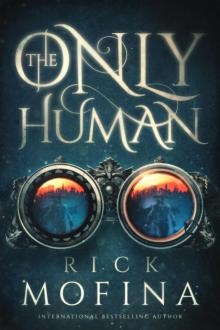 The Only Human
The Only Human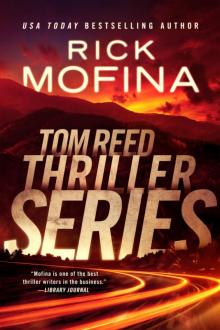 Tom Reed Thriller Series
Tom Reed Thriller Series![[Tom Reed and Walt Sydowski 04.0] No Way Back Read online](http://i1.bookreadfree.com/05/tom_reed_and_walt_sydowski_04_0_no_way_back_preview.jpg) [Tom Reed and Walt Sydowski 04.0] No Way Back
[Tom Reed and Walt Sydowski 04.0] No Way Back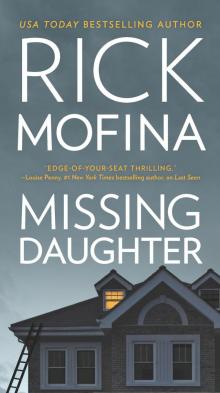 Missing Daughter
Missing Daughter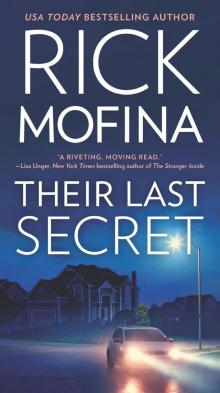 Their Last Secret
Their Last Secret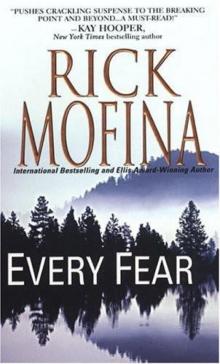 Jason Wade - 02 - Every Fear
Jason Wade - 02 - Every Fear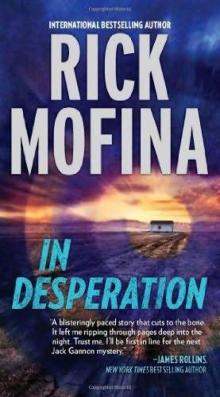 In Desperation
In Desperation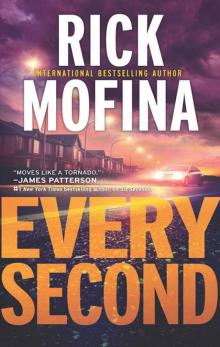 Every Second
Every Second Full Tilt
Full Tilt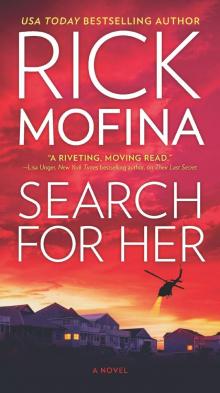 Search for Her
Search for Her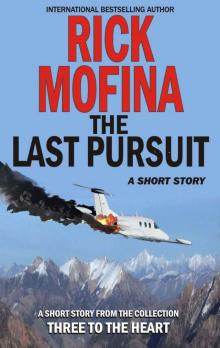 The Last Pursuit
The Last Pursuit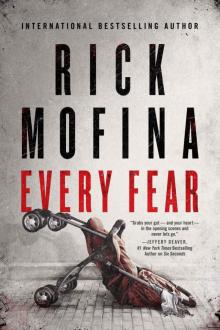 Every Fear
Every Fear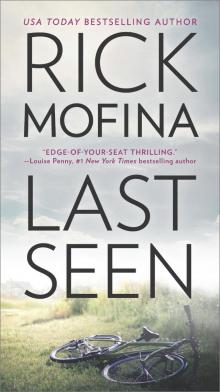 Last Seen
Last Seen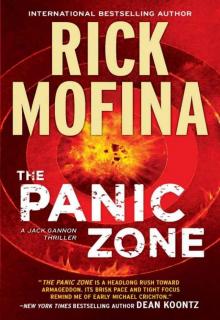 The Panic Zone
The Panic Zone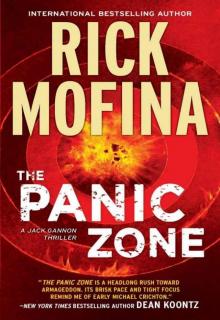 The Panic Zone jg-2
The Panic Zone jg-2 Free Fall
Free Fall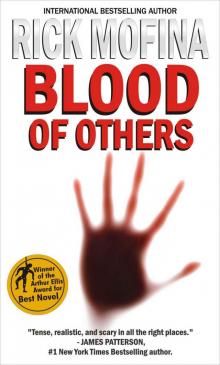 Blood of Others
Blood of Others![[Jason Wade 02.0] Every Fear Read online](http://i1.bookreadfree.com/i1/03/31/jason_wade_02_0_every_fear_preview.jpg) [Jason Wade 02.0] Every Fear
[Jason Wade 02.0] Every Fear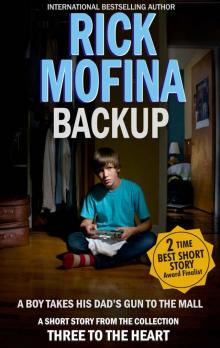 Backup
Backup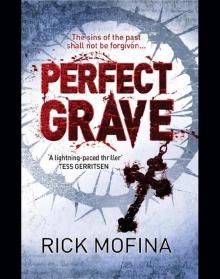 Perfect Grave
Perfect Grave Into the Dark
Into the Dark Whirlwind
Whirlwind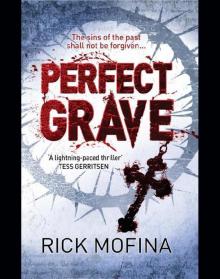 Perfect Grave jw-3
Perfect Grave jw-3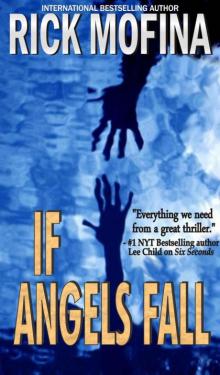 If Angels Fall (tom reed and walt sydowski)
If Angels Fall (tom reed and walt sydowski)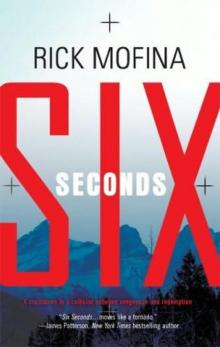 Six Seconds
Six Seconds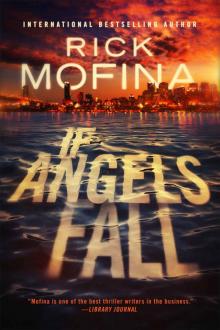 If Angels Fall
If Angels Fall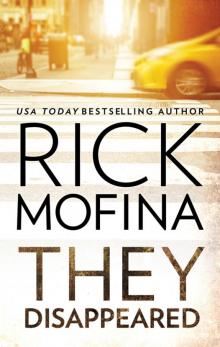 They Disappeared
They Disappeared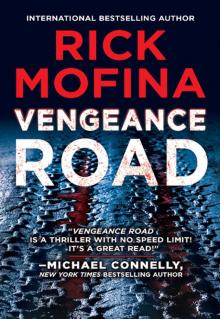 Vengeance Road
Vengeance Road Before Sunrise
Before Sunrise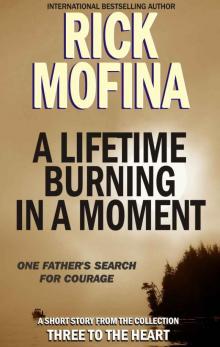 A Lifetime Burning in a Moment
A Lifetime Burning in a Moment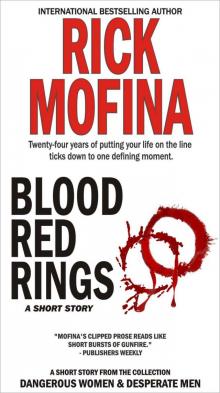 Blood Red Rings (Dangerous Women & Desperate Men)
Blood Red Rings (Dangerous Women & Desperate Men)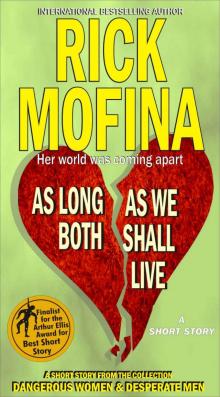 As Long As We Both Shall Live (Dangerous Women & Desperate Men)
As Long As We Both Shall Live (Dangerous Women & Desperate Men)![[Tom Reed and Walt Sydowski 01.0] If Angels Fall Read online](http://i1.bookreadfree.com/i2/04/12/tom_reed_and_walt_sydowski_01_0_if_angels_fall_preview.jpg) [Tom Reed and Walt Sydowski 01.0] If Angels Fall
[Tom Reed and Walt Sydowski 01.0] If Angels Fall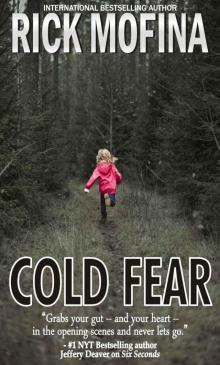 Cold Fear
Cold Fear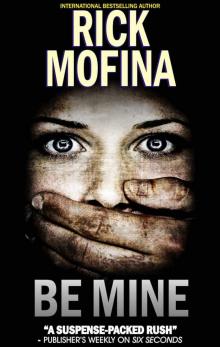 Be Mine
Be Mine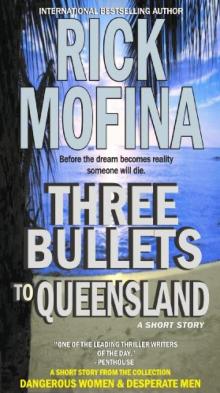 Three Bullets To Queensland
Three Bullets To Queensland